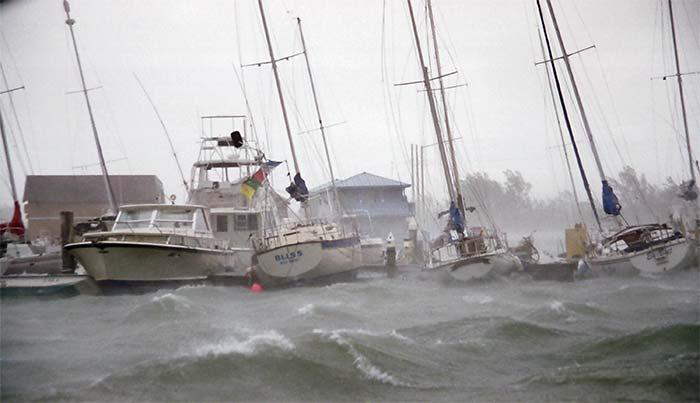Today, Friday, is likely the last business day that will run normally, with a potential hurricane preparing to affect Florida. Here are some recommendations for the safety of your property, and your boat:
The Florida Association of Public Insurance Adjusters (FAPIA) recommends:
- Checking what your policy does and does not cover. Not all insurance policies are the same. Your policy may contain restrictions or exclusions on windstorm damage or caps on a water-related loss. Be sure to review your deductible as well, as this represents the out-of-pocket expense you will have to be prepared to absorb if you have a loss.
- Reviewing the “Duties After Loss” section of your policy. If you need to file a claim, failure to follow the provisions listed in this section could result in non-payment.
- Making a visual record of your home and possessions. Take pictures or shoot video to document the condition of your home and belongings before any damage possibly occurs.
- Preparing a detailed list of your personal property. This will help document your claim after a loss. If you still have them, gather up receipts for large items such as major appliances, furniture and electronics; make copies to include with your property inventory.
- Creating a disaster supply kit that includes copies of your insurance policies, family medical information, deeds and wills, etc. Place the originals of those important documents in a safe deposit box, safe or in a tightly sealed container in your car and make a digital copy to keep on the cloud for easy reference.
- Checking your flood insurance. This is especially important to have purchased by now if you live in a flood zone. Flood insurance typically has a grace period of 30 days before it goes into effect. That means you should purchase it well before any major storm. If you purchase it less than 30 days before a flood, you might not be able to file a claim.
- Knowing where to turn for help if your home is damaged. If you’re struggling to know what to do first, public insurance adjusters can help, but be sure to only hire a licensed public adjuster. Public insurance adjusters are licensed by the state and trained to ethically advocate for and help policyholders throughout the complex claims submission process. Unfortunately, there are bad actors out there misrepresenting themselves, so take care to only work with a state-licensed public adjuster.
FWC reminds boaters to prepare vessels for severe weather: When a tropical storm or hurricane affects our state, Florida's boat owners and operators have more to be concerned about than just their homes and families.
The Florida Fish and Wildlife Conservation Commission (FWC) has gathered the following informational resources to help boaters prepare for storms and be better able to deal with the aftermath:
Move your vessel if you can and protect it if you can’t.
- If your boat can be trailered, haul it out of the water and move it to a safe location as far from tidal waters as possible.
- If your vessel must stay in a marina berth, double all lines and rig-cross spring lines fore and aft, and attach lines high on pilings to allow for tidal rise or surge.
- If your vessel is at anchor, move to the most protected area possible and set out multiple anchors with at least a 10:1 scope, remove canvas coverings if possible and remove or secure any sails.
- If your vessel will remain on a mooring, make sure the mooring is designed to withstand the load that will be placed on it by your vessel. Inspect chains and swivels that connect to the mooring buoy and double up on the mooring pendant.
- Use the Florida Boat Ramp Finder to find a ramp near you.
Cover all lines to prevent chafing.
- Wrap all lines where lines feed through chocks with tape, rags and rubber hoses or leather. Install fenders, fender boards or tires to protect the boat from rubbing against the pier, pilings or other boats.
Charge batteries and make sure they can run automatic bilge pumps throughout the storm.
- Consider adding backup batteries and shut off all other devices that consume electricity.
DO NOT STAY ONBOARD.
- During a hurricane, winds can exceed 100 mph and tornadoes are often associated with these storms. If you’re on board during a bad storm, you are risking your life.
- Learn what Florida law says about mandatory marina evacuations. Chapter 327.59, F.S., Marina Evacuations.




